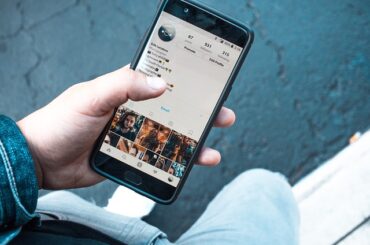Mistakes. They do occur. They will take place. The most you can aim for is to avoid them as much as possible while minimizing the harm they do. Mistakes. They are what distinguishes us as humans. Mistakes will be made on social media. Miscommunication, misunderstanding, and an inability to identify possibilities will occur. Is this the end of the world for your company? No, and it should not be the end of your company’s social media efforts.
Planning is the most effective strategy to reduce errors. The greatest approach to mitigate the consequences of errors is to learn from them. Recognizing that errors may hide magnificent possibilities is the best approach to go ahead. The only way to do so is to devise a strategy.
There are only two errors one can make on the path to truth: failing to go all the way and failing to begin – Buddha
Plan for Social Medi
Each social media contact must be linked with a wider goal. This plan outlines your company’s overall strategy for using social media. As new projects and opportunities occur, this strategy will be revised. Your social media strategy should include the following elements:
- Determine who is in charge of starting, monitoring, and participating in social media.
- Determine the message’s purpose.
- Create a dialogue decision-making model.
- Create metrics for measuring success and failure.
- Set deadlines for each endeavor, dialogue, and reaction.
These components must be compatible with the social networking platform you have selected. This will determine the importance of each component. All of your company’s main players should be included in the planning process. This should involve everyone from the decision-makers to the communicators who will be executing your social media strategy. This will assist your team in understanding their duties, the decision-making process being employed, and obtaining the critical buy-in from all parties involved. Role-playing should be employed during planning meetings to infer the range and depth of prospective dialogues. This period may be utilized to identify potential pitfalls, test assumptions about your social media strategy, and build trust in the platform you’ve selected. Role-playing will assist your team in identifying shortcomings and opportunities as they occur.
Don’t be afraid to make errors. You will experience failure. Keep reaching out. Franklin, Benjamin
Recognizing Errors
What social media planning allows your organization to do is be ready for when errors occur. They will take place. Serendipity usually reigns in such blunders, and only well-prepared businesses can transform them into opportunities. Your firm will not know when a mistake has been made or how to react to it unless it has been planned for and practiced via role-playing. Consider when Kevin Smith, the filmmaker, was forced to leave a Southwest Airlines aircraft owing to his stature. He got off the plane and instantly tweeted about it. Southwest Airlines may have faced a massive backlash if it did not have a social media strategy in place. Southwest was able to react swiftly and accurately because it had a strategy in place. As a consequence, there was a constructive discussion concerning Southwest’s rules and Mr. Smith’s objectives. The ultimate decision was left to individuals who saw this social interaction, and the possibility of a disastrous public relations day was averted.
Both sides were at fault. Because of his size and Southwest’s policy of charging bigger customers for two seats, Southwest should not have permitted Mr. Smith to catch the earlier flight (which was crowded). He didn’t have enough on the airplane he was on. Mr. Smith’s tweeting about this event so close to the debut of his new film made it seem self-serving to get free publicity. The end result was good education on Southwest’s rules and the efforts they took to accommodate Mr. Smith through social media interaction. Both received publicity and had their sides of the story told. Southwest’s error would not have been as forward-thinking if it had not planned to have a dialogue about its policy online. It would have had to tackle everything defensively and reactively. Southwest would not have been allowed to participate in the discussion. Southwest would not have been able to reply in time.
The successful guy learns from his failures and tries again in a new manner. Dale Carnegie’s
Acceptance of Responsibility
Having a social media strategy allows your company to accept responsibility when anything goes wrong. In a hyper-litigious environment, most businesses seldom really apologize or accept responsibility. The British Petroleum catastrophe in the Gulf of Mexico included a sideshow of finger-pointing. While around 35,000 barrels (roughly 350,000 gallons or 1,400,000 liters) of oil flow into the waterways each day. BP’s CEO exacerbated the situation by venting on his Facebook page. Talk about not having a social media strategy and exacerbating a bad situation!
Companies may take responsibility thanks to social media, which enables them to have direct conversations with consumers while others observe. Chicago is a prime example. The Chicago Dominos Pizza company utilizes social media to advertise deals, connect with consumers, and admit faults. In one case, one of the businesses made an error with an order. In response to a Twitter complaint, the shop manager and the employee who made the error apologized. Instead of hiding behind regulations, processes, or even pointing fingers, one Domino’s franchise apologized. They accomplished this by broadcasting a video and immediately engaging the buyer while others watched. As a consequence, they received recognition and boosted business.
This would not have been possible without a social media strategy. Roles are allocated, conversations are planned and dynamic, and people participate in genuine interaction with one another. The Chicago Dominos franchise’s social media strategy is focused and engaged. They are a part of the debate and the community because of their social media strategy. A local company using a free platform to keep connected.
You’re not accomplishing anything if you’re not making errors. I am certain that a doer makes errors. – Wooden, John
Mistakes Aid in Learning
Mistakes. They will take place. You will make errors when you begin your social media involvement or as you examine your current participation. You will learn and improve as a result of your errors. Some may be expensive, and although I will not suggest that they are acceptable, how you recover from them may be the most beneficial to your organization.
If you’ve been following the International Cup, you’ve probably heard about England’s goalkeeper, Robert Green, making one of the worst blunders on the world stage. The United States tied the match thanks to a minor error. Mistakes in such a high-pressure event, particularly in a vital position, have consequences for both the team and the person involved. Everyone watched as the error was committed, and now everyone is waiting to see how Robert Green recovers.
That blunder taught him and his team a lot. He’ll be more aggressive in his pursuit of the ball. The defense will tighten up to thwart outside shots like Clint Dempsey’s. Other clubs warn their goalkeepers not to pull “a Green.” So it will be if you make a social media error. Others will learn from your error, and you will as well. If you don’t have a social media strategy, you won’t be able to respond and capitalize on your mistakes.



